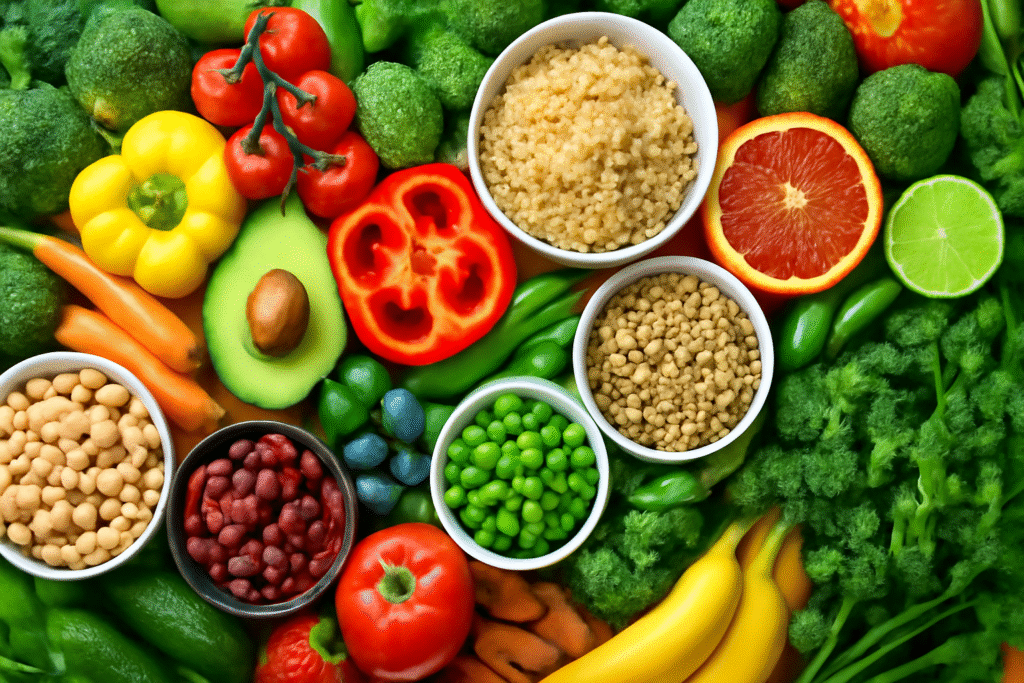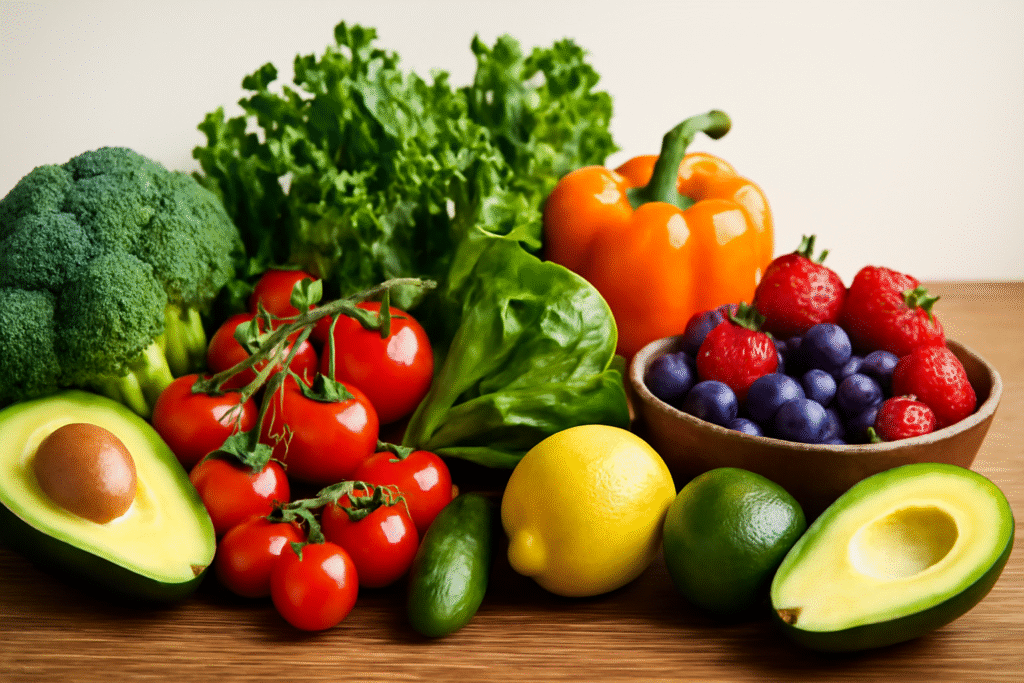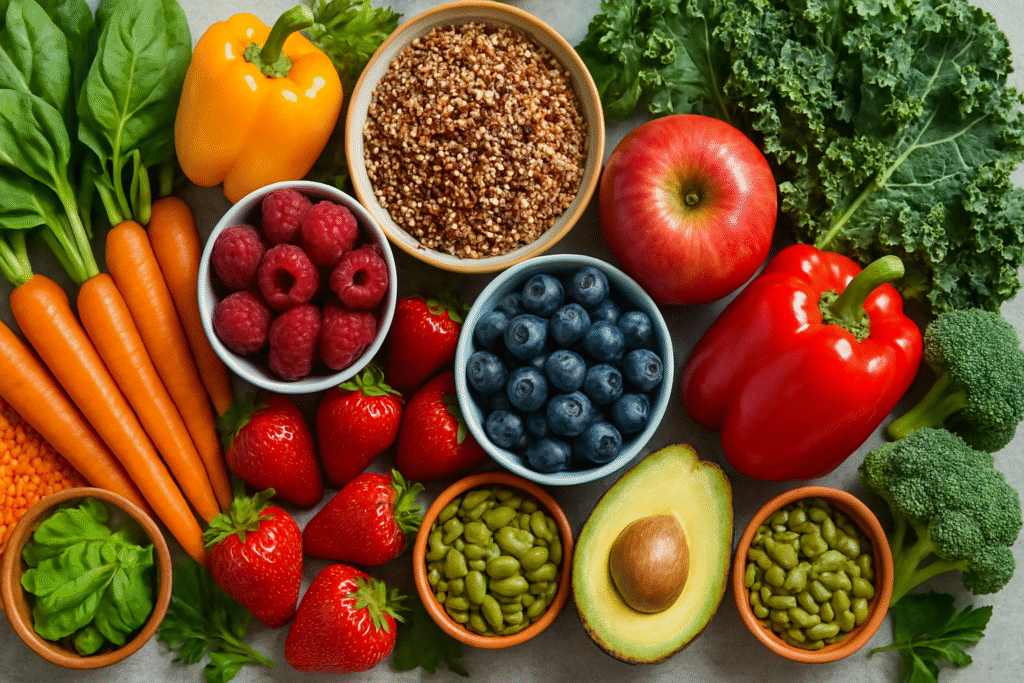
Earth is at an edge. The rates of climate change, deforestation, water shortage, and loss of biodiversity have gone through the roof. As guardians of this planet, a moot question stares us in the eye: how to reverse this trend? Though systemic changes are imperative, individual choices also hold the capacity for transformation. Of these, veganism is an identifiable, doable step to help take care of the planet. Veganism has very little to do with diet; instead, it’s an emotional empathy for living beings and a rational solution to the environmental problems at hand. The environmental benefits of veganism are significant, as it reduces greenhouse gas emissions, conserves water, and minimizes deforestation. Once the ecological impacts of animal agriculture are understood, including many reasons why plant-based living improves human life, it is easily seen why going meat-free can be looked upon as a gift to Mother Earth.
Animal Agriculture and Ecological Degradation with Long-Term Consequences
Animal agriculture is the second largest cause of environmental degradation, only surpassed by energy and transportation-related industries. Animal agriculture contributes in significant measures to human-made greenhouse gas emissions, mostly in the form of methane produced by livestock, as well as nitrous oxide due to manure management and the use of fertilizers. For instance, methane contributes to the greenhouse effect, being over 25 times more potent than carbon dioxide. The Food and Agriculture Organization of the United Nations estimates that livestock production contributes about 14.5% of all human-caused greenhouse gas emissions.
Besides the emissions, animal agriculture also fuels deforestation. Large expanses of forests, including vital ecosystems like the Amazon rainforest, are cleared each year to give way to either cattle ranching or to grow soy and other crops serving as animal feed. This further contributes to releasing stored carbon into the atmosphere and destroys habitats, moving innumerable species toward extinction.
Another very serious issue is water consumption. When one kilogram of beef needs about 15,400 liters of water to produce it, a kilogram of vegetables requires as little as 322 liters. The production that is so water-intensive enhances the problem of water shortages in regions where freshwater supplies are already low.
Animal farming is also a source of pollution: Runoff from factory farms and livestock operations carries nutrients, pathogens, and chemicals into waterways, contributing to eutrophication and the creation of “dead zones” in oceans and lakes. These cannot support marine life, disrupting further the ecosystems and food security.
The long-term consequences of such practices are gruesome. Increased temperatures, lack of biodiversity, and the depletion of resources—these are not hypothetical scenarios, it is real and is occurring at this very moment. The challenges require fundamental shifts in the way food will be produced and consumed.

Benefits of Veganism: Resource Conservation, Biodiversity Protection, and Waste Reduction
The vegan lifestyle presents a contrast to animal agriculture in more sustainable means. By dispelling the inclusion of animal by-products in your diet, an individual automatically reduces his contribution to pollution. Some other key benefits include the following:
- Resource Use: Overall, plant-based diets use less of each resource. For instance, the cultivation of plant-based proteins like lentils, beans, and tofu uses much less water and land compared to animal-based proteins. If diets worldwide started shifting to plant-based eating, several million hectares of land currently dedicated for livestock and feed crops could be freed and returned to natural ecosystems.
- Protection of Biodiversity: The highest-ranking reason for the loss of biodiversity includes habitat destruction to stock and feed farm animals. To save forests, wetlands, and grasslands that serve as home to many species, we need to reduce consumption of meat, dairy, and other animal-based food products. A plant-based approach further reduces the invasive species proliferation brought on by mono-culture farming for farm animal feed.
- Waste Reduction: Animal agriculture is a very wasteful practice—from the manure to uneaten feed, much of which ends up polluting land and water. In contrast, plant-based farming produces less waste and offers more opportunities for composting and recycling organic material. Plant-based diets can also help reduce food waste by promoting direct human consumption of crops rather than using them as feed for livestock.

Overcoming Obstacles: Making Veganism Accessible and Affordable for All
But however appealing the idea, most people have found the real-world practice of veganism a daunting task. Up till today, common obstacles come from perceived high costs and accessibility and cultural resistances. These are areas which need to be amended for the veganism option.
- Affordability: One of the most held myths is that vegan diets are expensive. Hiding behind the high costs of processed and specialty vegan products, grains, legumes, vegetables, and fruits are usually much more affordable than animal products. Governments and organizations can further support affordability by providing subsidies for plant-based foods and reducing those on animal agriculture.
- Accessibility: Fresh vegetables and plant-based options remain inaccessible, particularly to the most vulnerable, living in food deserts. Such situations can be ameliorated by the creation and scaling up of community gardens, urban farming projects, and supplying plant-based staples. Education and awareness help people understand how to compile a proper, varied vegan diet; otherwise, looking for options within their budget will best prepare individuals to make active choices through public campaigns, school programs, and online resources that lead them to confidently live with plant-based diets.
- Cultural Sensitivity: Food is often regarded as something attached to cultural identity; therefore, adopting veganism can be seen as a rejection of that tradition. Most cultures have plant-based staples one can celebrate and update: examples include the emphasis on legumes and vegetables in Mediterranean diets, tofu, tempeh, and many plant-based dishes in Asian cuisines. Veganism can thus be framed as an evolution of tradition, not as a departure from it.

Cultural Impact: Sustainable Evolution of Food Traditions
Food traditions have never been fixed; neither have they failed to change with needs and pressures within an environment. Thus, veganism does not equate with the erasure of cultural heritage but rather the reimagining of the latter towards contemporary imperatives of sustainability.
- Reconnecting with Plant-Based Roots: Most traditional diets were plant-based; most cultures did not have access to meat until after industrialization. Celebrating these roots helps people reconnect with their heritage while adopting more sustainable practices.
- Plant-Based Innovative Cuisine: Chefs and home cooks around the world are taking classic dishes and reimagining them with plant-based ingredients. From jackfruit “pulled pork” to cashew “cheese,” these innovations preserve flavors and textures of beloved recipes while reducing environmental impact.
- International Dimensions: Increasing veganism is also facilitating inter-cultural food exchange. Food typically consumed, such as hummus, falafel, stir-fried vegetables, exposes one to new flavors and types of food preparation, and hence broadens the palate of his usual view of food.

In effect, veganism does offer obvious and powerful environmental benefits: the conservation of resources, protection of biodiversity, and reduction in pollution that represent a pathway toward more sustainable ways of producing food. While there are a few remaining challenges, these challenges are surmountable. With awareness, policy support, and cultural adaptation, it would be possible for people in general to avail themselves of and enjoy veganism.
Going meat-free is not about perfection; it’s about progress. Every meal without meat moves us further toward a healthier planet, a fairer food system, and a brighter future for our kids and their kids, too. We can make uncomplicated, intentional changes in our diets that will respect the Earth and keep it healthy for generations to come. Let us join the movement to turn our plates into forces for good.









